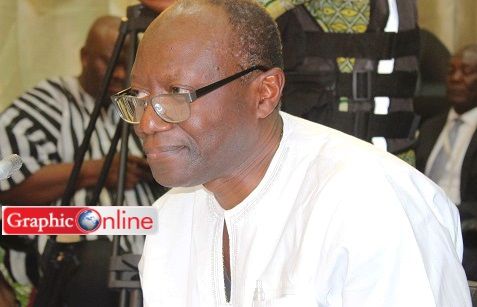
Economic hardship, moving the debate from equalisation to solutions
Undoubtedly, there is economic hardship in Ghana. But is it new? Certainly not. Ghanaians, like people in many other developing countries, have faced “economic hardship” over a long period of time.
Advertisement
Instead of recognising the realities of persisting economic hardship and finding solutions to it, unfortunately, the debate, as always, has been conducted in terms of equalisation, which has become an unfruitful political discourse in the country.
Indicator
I wish to use a simple indicator of “economic hardship” and compare its value for the first nine months of 2018 - the most current period for which data is available - with its value during the corresponding period of 2016.
As a proxy for “economic hardship,” I use the ratio of the cost of living (proxied by the CPI index) to income (proxied by the minimum wage). This is like reversing the real value or purchasing power of the minimum wage.
In 2016, the average CPI index for January to September was 175.3, while the minimum wage was GHc8.00. This gives an economic hardship measure - or Economic Hardship Index (EHI) - of 21.9.
In 2018, the average CPI index for January to September was 217.1, while the minimum wage was GHc10.65. This gives an EHI of 20.4. This simple, back-of-the-envelope calculation, shows that the EHI for January to
The decline in the EHI between the two periods resulted from an increase of 23.8 per cent (217.1/175.3) in the CPI that was more than offset by the increase of 33.1 per cent (10.65/8.00) in the minimum wage.
CPI and minimum wage
I have to point out that in absolute terms, both the CPI and minimum wage will usually increase over time. Therefore, it is their relative rates of increase that will determine whether the EHI increases or decreases.
It should also be clear that if inflation is reduced on a sustainable basis, it will help dampen the overall cost of living (i.e. the CPI) so that the minimum wage may not have to increase significantly to reduce economic hardship (EHI).
That is why it makes sense for us to work towards taming inflation on a sustainable basis in this country so that the cost of living and economic hardship can be equally tamed on a durable basis.
Deprivation/hardship
Against the above backdrop, let me say that both the current daily minimum wage of GHc10.65 and the incidence of poverty in Ghana (whereby millions live on less than $2 a day) attest to the extent of deprivation - and economic hardship - in the country.
Basic items like food, transport, petrol, medicals, clothing, household goods and utilities do not come cheap and many Ghanaians struggle daily to make ends meet.
Social interventions help to alleviate the financial burden of beneficiaries but only to a limited extent.
Suggestions
I make three suggestions to this end.
Naturally, I start with food. If you have enough food to eat, your economic hardship will be drastically reduced. Ghana still spends a lot of its hard-earned currency to import food (such as rice, poultry, etc.). It means that
Further, Ghanaians, on average, spend 44 per cent of their budget on food (as determined by the weight of food in the CPI). This is atrociously high.
Thus, there is the urgent need to produce more food locally to reduce food imports and also lower food prices.
We actually need an “agricultural revolution” in this country aimed at producing more food - desirably, productively.
There is a need for serious interventions along the entire
I believe that the Planting-for-Food-and-Jobs (PFJ) and other programmes are all important components of this process and should be appropriately coordinated and reinforced to increase their effectiveness and impact.
Fuel
My second suggestion relates to petrol prices, which have gone up quite a bit with the pass-through of higher world prices and
The government can do two things to alleviate the hardship arising from high petrol prices. The first is to reduce or eliminate some of the levies/taxes.
The negative effect of such an action on the budget may be offset by taking compensating tax measures, including continuing to widen the tax net through digitisation and
The second is to expand and subsidise public transportation to increase access
Utilities
My third suggestion relates to utility tariffs. Despite
The high cost to households compounds their economic hardship while the high cost to industry makes the sector uncompetitive internationally.
Consideration should be given to reducing some of the levies in the tariff buildup to relieve the burden on consumers.
The PURC should exercise stricter scrutiny over these costs and ensure that they are reasonable in order that they are not unduly passed on to consumers in high tariffs. It will also make economic sense to open up the industry to participation to engender competitive—and hopefully lower—tariffs.
The author is from IFS and was previously at BoG, IMF and IEA. Email: [email protected]




